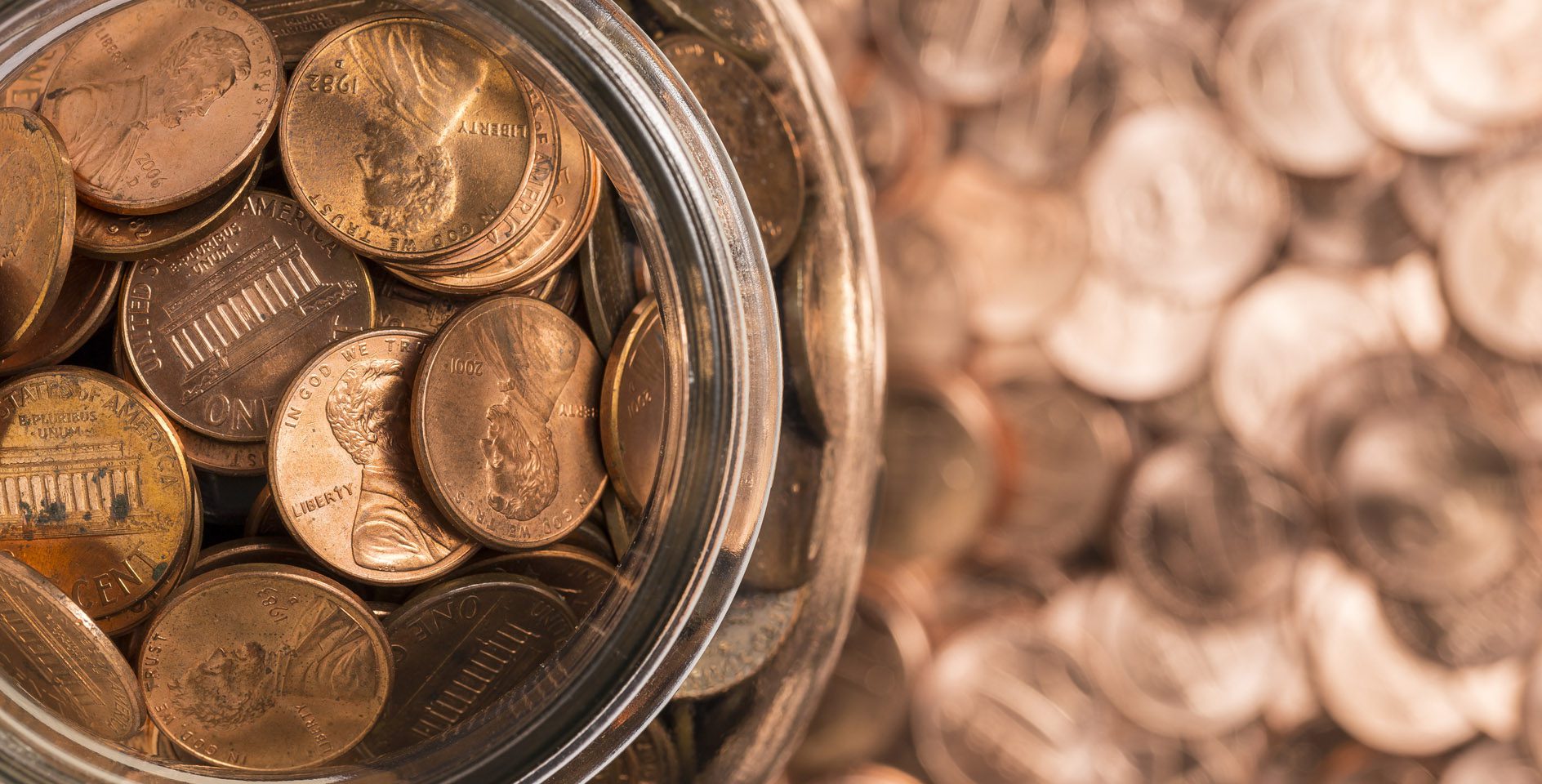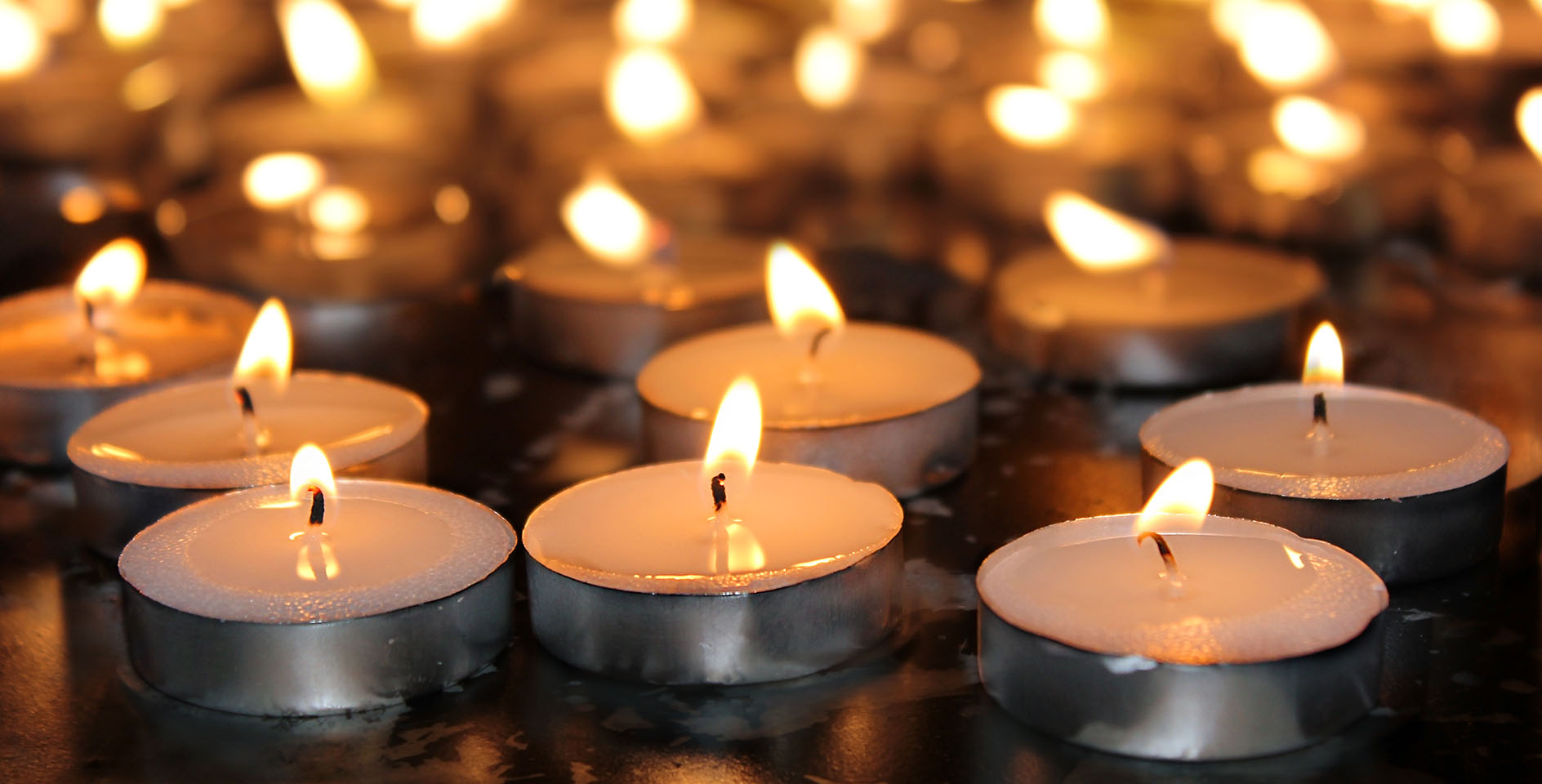They once rattled in pockets and paid off purchases. Now they’re routinely tossed to the ground and trampled underfoot. Some voices have even proposed doing away with them altogether. At a cost of 1.4 cents to mint per cent, the copper-plated zinc coin bearing Lincoln’s image is, the thinking goes, too costly and too inconvenient.
Put simply, the penny has fallen on hard times.
The old maxim, “A penny saved is a penny earned,” adapted from the treasuries of Benjamin Franklin’s wit and wisdom, fell out of mass circulation long ago. Now, it seems, the 2.5-gram one-cent piece is more nuisance than worth.
At least that’s what many think.
Picking up pennies
I’ve written before about our culture’s collective affinity toward our smartphones. We might do well, I suggested, to take our eyes off our hand-held screens from time to time and gaze elsewhere, lest the world around us and the God above us pass us by without our recognition. One might call our surf-and-scroll addiction the looking down problem. Count me guilty.
But count me guilty too of looking down, past the glossy glass in hand to the gritty ground below, while pounding the pavement from one destination to the next. The shine (or dullness) of my shoes is not my interest. Instead, I’m looking for the discarded, overlooked, trampled down penny.
Seldom does a day pass when commuting via Washington’s Metro rail transit system, or walking the corridors of the capital’s Union Station, that I don’t spot a penny on the pavement. Since the first of the year, I’ve stumbled upon and picked up more than 200 pennies (yes, I keep count). At this penny-a-day pace, I’ll be worth a Starbucks venti gingerbread latté by Christmas. Well, maybe.
But my years-long habit of rescuing homeless pennies is not some innovative means to add to my Christmas cheer. Nor, like the misguided pursuit of others, is it a hobby in hopes of finding “fortune” or “good luck.” It is instead, for me, a spiritual exercise.
Let me explain.
Minted by the Master
When I spot a penny on the ground, I’m reminded that the supreme God of the universe cares for every human life, small and insignificant as society may deem any one person. Jesus himself pointed to the penny, one of the smallest denominations in first century Palestine, to convey this rich spiritual truth.
“Are not two sparrows sold for a penny?” he asked. “And not one of them will fall to the ground apart from your Father. But even the hairs of your head are all numbered. Fear not, therefore; you are of more value than many sparrows” (Matt. 10:29–31).
Consider, too, the psalmist’s declaration: “The LORD is high above all nations, and his glory above the heavens! Who is like the LORD our God, who is seated on high, who looks far down on the heavens and the earth? He raises the poor from the dust and lifts the needy from the ash heap….” (Ps. 113:4–7).
As I reach down to pick up pennies from the beaten path, my mind reflects upon this remarkable truth. I’m reminded that every life is sacred and created in the Imago Dei—the image of God (Gen. 1:27). I remember that the God who owns the cattle on a thousand hills is the same God who picks up the common—the marred, the tarnished, the sin-stained. The God Who Sees does not pass over anyone. None of the world’s 7.4 billion people escape his eye. None go unnoticed. All, in his eyes, bear inestimable worth.
He bends down from the throne of heaven to behold the unlikely and the unlovely. He reaches down to the least and the lost, the lowly and the lonely. He lifts the lame and lightens the load of the heavy laden.
In other words, he reaches down to you and to me. He sets us at liberty. And he does so through the condescension of his Son.
I pause and thank God for such grace.
His was a cost not measured by shekels or weighed in gold. The child of God, I recall, has been ransomed “not with perishable things such as silver or gold, but with the precious blood of Christ, like that of a lamb without blemish or spot” (1 Pet. 1:18–19).
He fashions his redeemed sons and daughters into something quite uncommon. He remakes the middle, the core—the heart—to a pure composition found in the righteousness of his beloved Son, who “humbled himself by becoming obedient to the point of death, even death on a cross” (Phi. 2:7). And in God’s eyes, that prized, purchased possession—minted by the Master—is shiny and new, even as marks on the face shall remain.
It’s a math that doesn’t add up. It’s an incomprehensible calculus, an unfathomable formula. It sounds too simple and defies all logic.
I praise God, penny in hand, for such a math that makes no sense.
And I remind myself that we, the picked up and purchased, are to seek to do something of the same.
Replicating the Master
Abraham Lincoln’s imprint on the face of the penny, beginning in 1909, is, I think, fitting. The 16th president recalled, at Gettysburg, that ours is a nation “conceived in liberty and dedicated to the proposition that all men are created equal.” He affirmed the dignity of every man, woman and child. At a time when millions living on U.S. soil were regarded as less than humans, the great emancipator stood in their defense. He reminded them, and the nation, that they bore the stamp of God just as much as anyone else.
In short, he reached down and picked them up.
When we peer down at the thrown out penny, we too can think about the disenfranchised and discarded among us. We can remember the unborn and the aged, the infirmed and the impoverished, the immigrant and the imprisoned—all those routinely denied, by many, the recognition of their God-given intrinsic worth.
Then we can seek to pick them up. We can, in that moment, lift them in prayer to the Father and ask what part we might play in heeding their plight, in helping them find liberty. The “poor in the dust” and the “needy in the ash heap” need no stroke of good luck. All of us, as image-bearers of God, share a need one and the same: a lift, out of our helpless state, from above—from a friend, from a neighbor, from, ultimately, a Father.
We can fixate on the penny’s year of mint, offset in relief to the right of Lincoln’s profile, and lift a word of praise for something good that comes to mind from that particular year. Or, as the case may be, we can offer a petition that God would bring about some good, for his glory, out of some evil that overtook a person or a nation that year. The Father to the fatherless is, after all, the One who brings light out of darkness (2 Cor. 4:6) and sets the captives free (Gal. 5:1).
Riches beyond measure
Admittedly, I hope we don’t do away with the penny. As long as one-cent pieces are around, I’ll keep my eye out for them, covered in dirt and trampled underfoot, and pick them up as a reminder that the Maker of heaven and earth cares for and stoops down to the least of us. And, if need be, I’ll find a bigger bowl to house my growing collection of adopted coins. An ever present reminder.
Indeed, a penny saved may well be a penny earned. But a penny found is, by my accounting, much more: an opportune occasion to consider the lives among us and the Lord who loves us. What better moment to recount the God to be praised, the Savior he raised and our lives that he saved!
To be sure, the once-lost but now-found coin is not a stroke of good luck, but a good gift from a faithful Father. And therein yields a treasure that cannot be weighed in copper and zinc, or silver and gold.
If only we will take the time to stoop down.
That’s just my two cents, anyway.










